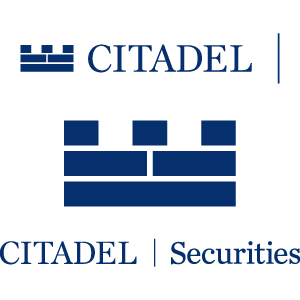Citadel quotes SEC report to battle collusion claims in short squeeze lawsuit
Citadel Securities has again asked a Florida judge to dismiss the charges accusing the firm of asking Robinhood to restrict trading on GameStop and other “meme stocks,”, a move that resulted in losses for small investors.

This time, the US market maker is citing the conclusions set out in the SEC’s report on the retail trading mania earlier this year. The US top regulator detailed how the events went down and raised red flags on a number of issues related to the structure of stock markets.
However, the report stopped short of laying blame on hedge funds, clearing houses or other market participants.
And as it turned out, Ken Griffin’s electronic trading firm says a lot of conspiracy theories floated on social media at the time was simply untrue.
The firm explains that the SEC’s report refutes plaintiffs’ argument that “Government investigations are indicative of anticompetitive collusion” and that it was specifically “indicative of collusion” that the SEC is “investigating the events concerning the January 28, 2021 trading restrictions.”
For context, the SEC found that the hedge funds that shorted GameStop stock not only were able to hedge their bets, but also booked substantial profits. Overall, hedge funds were not significantly affected by the short squeeze incident, so the allegations against them appear to be false.
In addition, the US securities regulator said it found no evidence of the so-called “gamma squeeze,” which is caused by the “naked short selling,” where investors short sell shares that have not been affirmatively determined to exist.
To support their point of view, the agency officials noted that GME share price maintained its upward trajectory even after the direct effects of covering short positions waned.
In addition, Citadel said the SEC’s conclusion supports its argument that “the enforcement of Plaintiffs’ claims would create conflict between the Exchange Act and the Sherman Act because the SEC is currently investigating the January 2021 short squeeze events.”
“Although the SEC noted “[o]ne narrative” that “attributed the broker-dealer trading restrictions to pressure from hedge funds and their commercial partners,” the SEC instead concluded: “A number of clearing brokers experienced intraday margin calls from a clearinghouse. In reaction, some broker-dealers decided to restrict trading in a limited number of individual stocks in a way that some investors may not have anticipated,” Citadel said in the legal statement.
Over the last few months, quite a few “Internet conspiracies and Twitter mobs” painted Citadel Securities in a bad light. The firm asked the court to dismiss a multidistrict litigation that centered on allegations that Robinhood and other platforms colluded to freeze stock purchases to spare the market maker losses on short bets.
But looking at the results of the SEC’s investigation, this isn’t exactly what happened . Instead, the report describes a process in which massive trading volumes forced retail brokers to temporarily stop or limit offering meme stocks due to capital requirements.
Wall Street’s central clearing hubs demanded these platforms to deposit billions more in collateral to shield them from the volatility during the trading frenzy. The surge in trading forced Robinhood to draw millions from its credit lines, then turned to existing investors and raised $1 billion to meet margin requirements.
Other defendants in the antitrust action including IBKR, E-Trade, Ally Financial and Apex filed separate memos supporting their motion to dismiss claims for negligence and antitrust.









